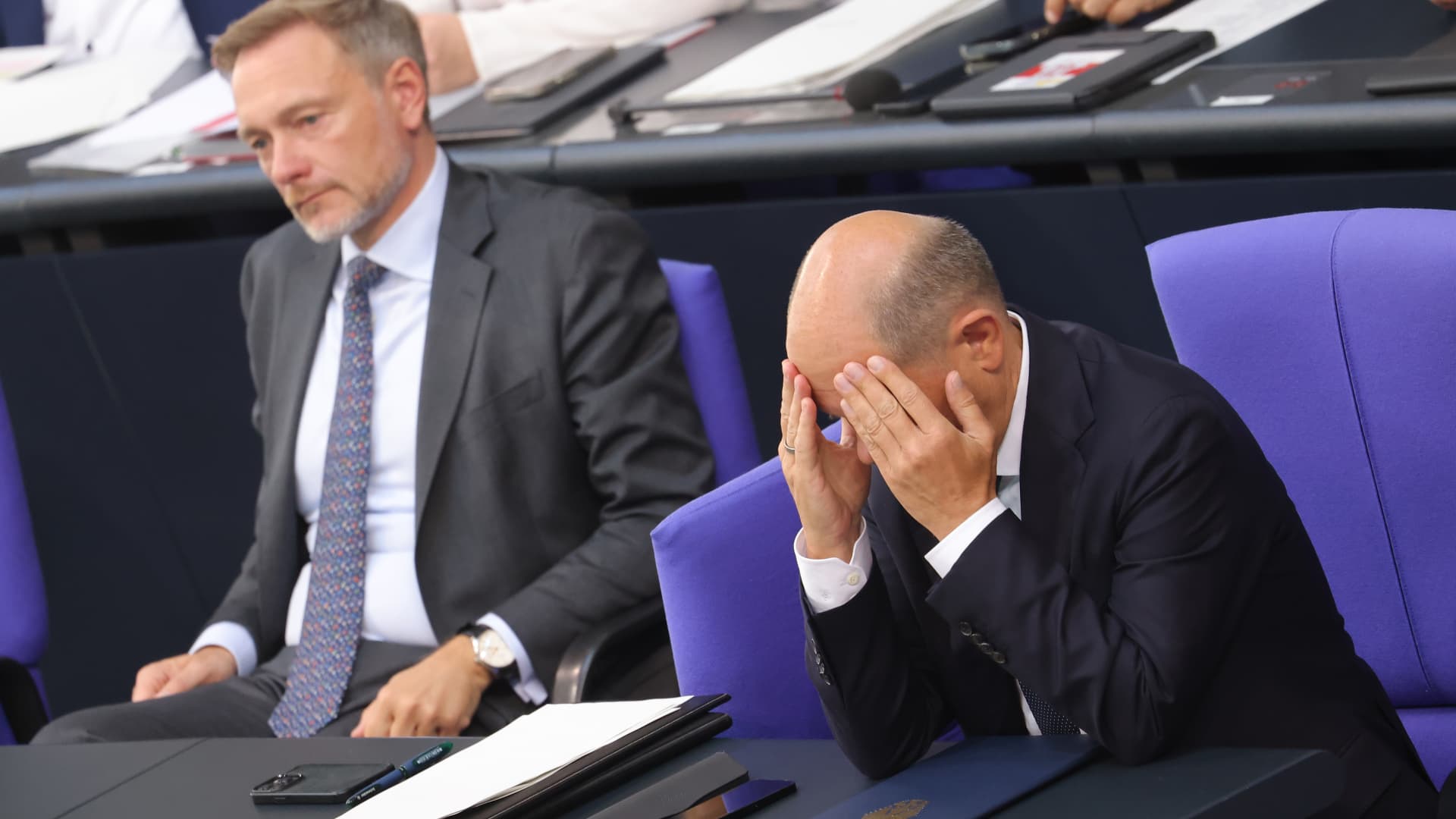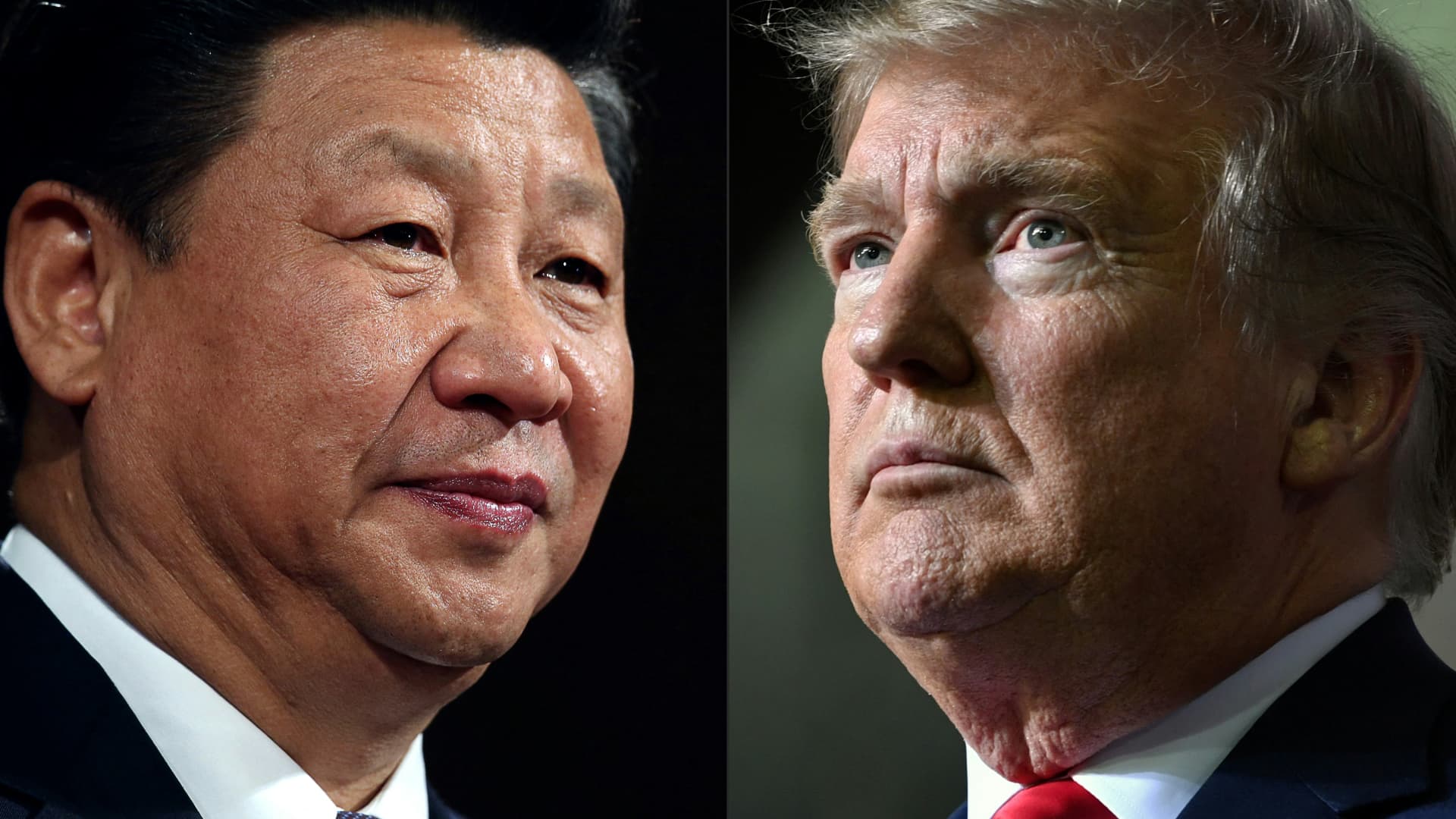German Chancellor Olaf Scholz and Finance Minister Christian Lindner in the Bundestag on June 26, 2024 in Berlin, Germany.
Michele Tantussi | Getty Images News | Getty Images
Chancellor Olaf Scholz announced Wednesday he had dismissed Finance Minister Christian Lindner, bringing an end to Germany’s ruling coalition after months of political wrangling and raising the possibility of snap elections in March.
The three-year-old union between Scholz’s Social Democratic Party (SPD), the Greens and Lindner’s Free Democratic Party (FDP) had been on shaky ground for some time, with differing budget and economic policy positions causing tensions and clashes.
Speaking at a press conference late Wednesday, Scholz launched a tirade against Lindner, saying he was not concerned about serving for the common good and he was dismissed to prevent harm to the country. Scholz said he would call for a vote of no confidence on Jan. 15 in parliament, raising the possibility of elections earlier than scheduled in March.
“Anyone who joins a government must act responsibly and reliably, they cannot run for cover when things get difficult,” Scholz said at the press conference, according to a Reuters translation. “They must be willing to make compromises in the interests of all citizens … But that is precisely not Christian Lindner’s focus right now, he is focused on his own clientele.”
Lindner paper
Both the FDP and the Greens confirmed late Wednesday that Lindner’s departure would mean an end to Berlin’s fractious coalition.
The parties had also been struggling to agree upon a 2025 budget, which still had a funding gap of several billions of euros and was still being negotiated. The deadline for the budget was set for later this month.
Debt brake
Lindner said at his own press conference Wednesday that his party had made suggestions for an economic shift, which had been rejected by Scholz. He called Scholz’s counter-suggestions unambitious.
“The Free Democrats are still ready to carry responsibility for this country and we will fight to also do this in a different government next year,” Lindner told reports, according to a CNBC translation.
Lindner said that Scholz had demanded a pause to Germany’s debt brake, which he could not accept. Enacted in 2009, Germany’s debt brake limits how much debt the government can take on, and dictates the maximum size of the federal government’s structural budget deficit. The rules say it can be no bigger than 0.35 percent of Germany’s annual GDP.










